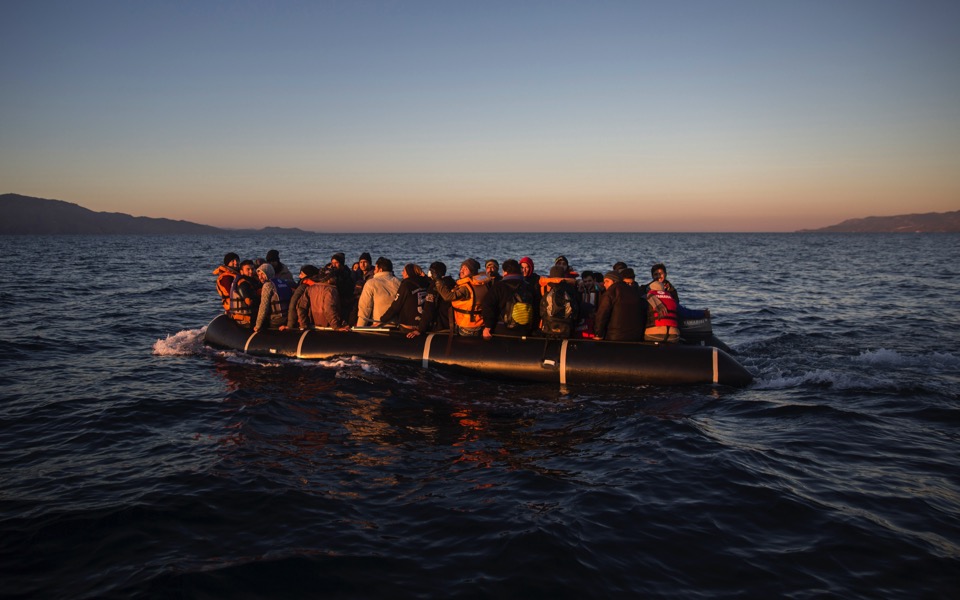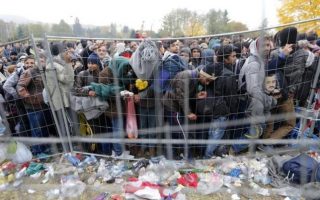The EU-Turkey deal is still rotten

“The thing is, Megan, when it comes to ethics, the markets just don’t really care.”
This was the advice one investor gave me when I said I wanted to write about the seemingly endless stream of refugees pouring across the Aegean and landing on Greek islands for an investor audience in January 2016. I was appalled – everyone should care as a human being – but it was a reminder that there are many perspectives from which to judge a development.
Similarly, there are many perspectives from which to judge the response to the refugee crisis, which culminated in a deal struck between the European Union and Turkey roughly a year ago. The flow of refugees streaming across the so-called “Aegean route” slowed dramatically following the EU-Turkey deal. But whether you think the deal “worked” or not depends entirely on your point of view.
The EU-Turkey deal was agreed on March 18, 2016, and the flow of refugees from Turkey to the Greek islands dropped drastically within days. However, refugees may not have only been deterred by the deal; the Greek-FYROM border was closed shortly before the deal was struck, and so refugees traveling to Greece ran the likelihood of getting stuck in Greece, where prospects for work are far worse than in most other EU countries. The EU-Turkey deal arguably got more credit than it was due for slowing the flow of refugees to Greece, but the agreement surely played a part. If you want to judge by that metric alone, you will find so far it has worked as intended.
One could also argue that the EU-Turkey deal was an economic success. One year ago, borders were popping up between countries within the Schengen area, causing many to worry about the future of the European project. The collapse of Schengen risked posing a significant economic headwind for countries such as Germany, with its supply chains well-integrated through Central and Eastern Europe. The death of Schengen and potential dissolution of the European project would have been detrimental for EU economies and markets. Schengen has not deteriorated significantly since the EU-Turkey deal, Germany has not been overwhelmed economically by the influx of refugees and the EU project persists.
From most other points of view, however, the deal has been a failure. Its implementation has been lackluster. Since the deal was agreed, fewer than 1,000 people have been sent back from Greece to Turkey – none of whom was a Syrian asylum-seeker. Meanwhile, despite aims to resettle more than 63,000 refugees from Greece in other EU member-states by September 2017, only 9,998 have been resettled so far. The low number of returns to Turkey may not be so terrible though – the country may be in breach of the Geneva Conventions and can hardly be considered a safe haven for civil liberties. This became even more apparent during the crackdown against academics and journalists in Turkey following the attempted coup in July 2016.
The morally indefensible nature of the deal is highlighted by the conditions of refugees stuck in limbo in Greece since it was struck. Images of refugee tents in Greece collapsed under the snow haunted those paying attention this winter. Human rights violations have been catalogued in many places.
From a policy perspective, the EU-Turkey deal has also failed. The EU desperately needs a migration policy, but this deal cannot be a pillar for one. While the number of refugees traveling across the Aegean has slowed, that of refugees coming across the Mediterranean into Italy has not. The EU can hardly make an arrangement predicated on the EU-Turkey deal with Libya given how weak the Libyan government is. Rather than address the issue of migration holistically, therefore, the EU seems to just be playing whack-a-mole.
The EU-Turkey deal has arguably failed from a political perspective as well. One might have touted the deal as prefiguring a thaw in relations between the EU and Turkey, whose bid to join the bloc had stalled for a long time. The recent dustup between Turkey and the Netherlands and Germany should disavow anyone of this expectation. The EU-Turkey deal was convenient for both sides; it stemmed the flow of refugees to Europe and in exchange the EU pledged 6 billion euros to Turkey and promised to lift the visa requirement for Turkish citizens wishing to travel to the bloc. The deal was more about what each side wanted than it was about their relationship with one another. This is even more evident now as Erdogan blatantly uses the Dutch and German ban on foreign political campaigns to help him campaign for expanded powers in a constitutional referendum in Turkey in April.
The EU-Turkey deal was also a political failure within Europe because, even though it slowed the flow of refugees, it did not stem the rise of anti-immigrant populist parties in Europe. This was most evident last June in the Brexit campaign. The Freedom Party in the Netherlands came in second place in an election last week, the Front National in France is polling in first place a month before presidential elections, and the Five Star Movement in Italy is leading most opinion polls.
Erdogan has threatened to pull the plug on the EU-Turkey deal a number of times over the past year, most recently a few days ago, when he noted that the EU had yet to make good on its commitment for a visa waiver. I thought the EU-Turkey deal was bound to fall apart a year ago, but now Erdogan just sounds like the boy who cried wolf every time he threatens to violate it.
The EU-Turkey deal is a rotten one, but it has given each side something they want. Both sides are therefore likely to carry out the bare minimum they have to in order to keep the deal alive. Europe will get fewer refugees across the Aegean and Turkey will continue to receive aid. The ones who don’t seem to win much of anything as a result of the deal are the refugees themselves.
* Megan Greene is chief economist at Manulife Asset Management.





